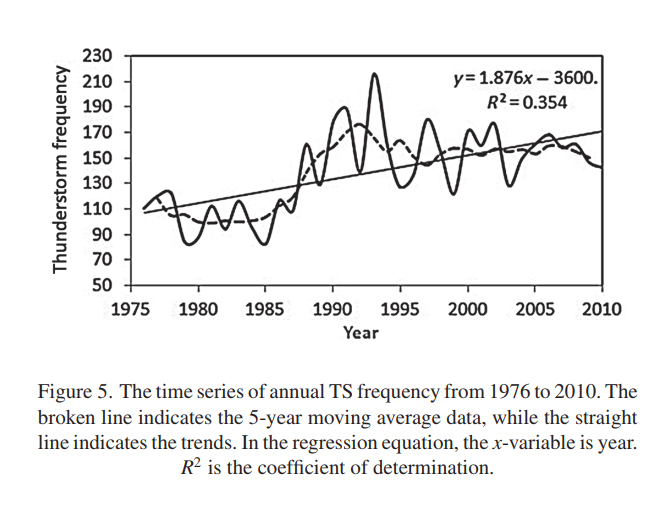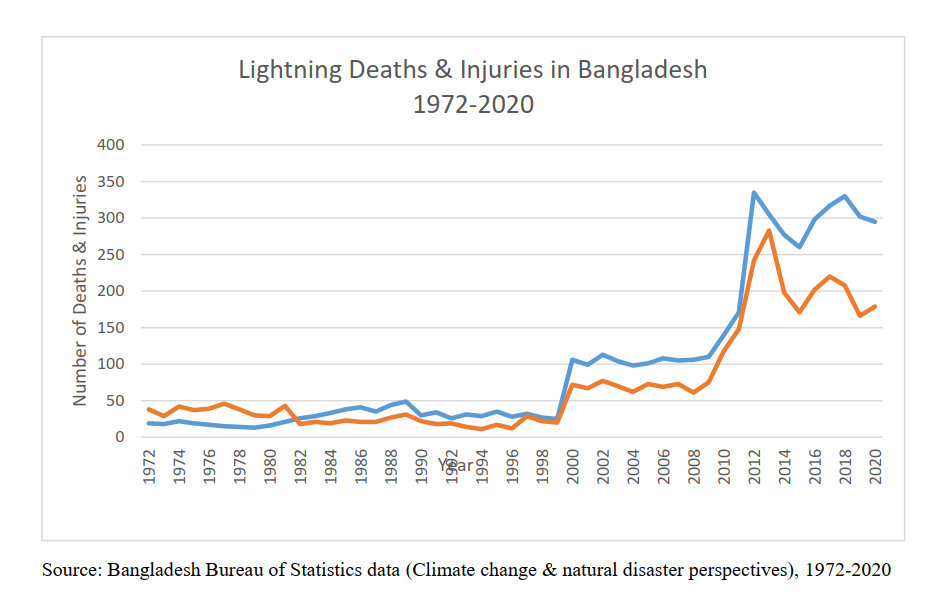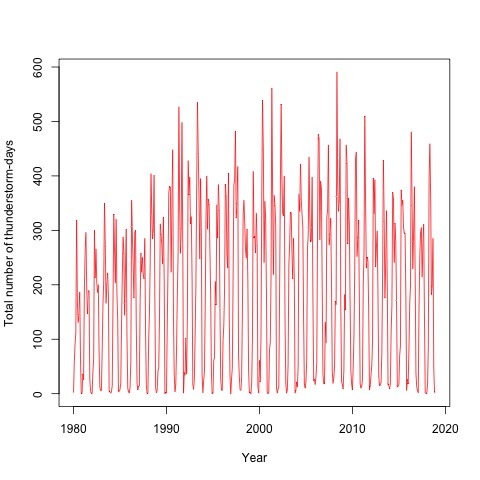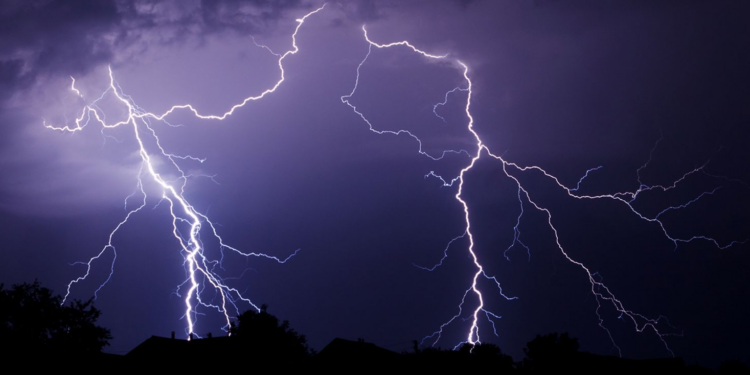Will 2024 bring any respite from the BBC’s relentless climate propaganda? It doesn’t look like it. As if to set the tone for the next twelve months, on New Year’s Eve it published a real gem. The central claim its article makes contains a very big but easily debunked falsehood.
Even when the evidence is sparse or non-existent, the corporation is always eager to tell us that every wildfire, flood, storm or drought is a sign that the planet is doomed and we must all submit to Net Zero. The BBC seems unconcerned that it has now racked up an ever-growing litany of examples of climate misinformation, while it regularly accuses others of doing the same.
In its attempt to drill into its readers the idea that we are on the brink of disaster, the BBC usually uses what its reporters think is a tried and tested method, or a combination of several. Where there is nothing more than a correlation between variables, it frames an article in a way which implies there is causation. Or it is selective with the evidence, ignoring anything that is inconvenient, including choosing a truncated period of time which suits its views, while disregarding longer-term data which would cast doubt on them. More generally, it simply emphasises some things and downplays others, guiding readers from the beginning of the article to the end along a path clearly signposted ‘Climate Catastrophe’.
This time, however, it went a step further, and its article is a good example of how bold (or reckless – take your pick) it is prepared to be in pushing a narrative of impending environmental calamity. The central claim it made to support its case is demonstrably untrue. It claimed that a big increase in deaths from lightning strikes in Bangladesh is linked to climate change – the story is unambiguously headed ‘Bangladesh sees dramatic rise in lightning deaths linked to climate change’ – because in recent years there have been more thunderstorms. Yet, on the contrary, data show that in the years when deaths greatly increased, there was not an increase in thunderstorms.
This, of course, leaves aside the important, related question of whether more thunderstorms would have been evidence of climate change over the long-term – something the BBC and other believers in climate dogma simply assume is the case.
It is not as if the BBC is suggesting climate change may be the cause. When the BBC says the increase in deaths is linked to climate change, it is clearly implying there is causation, not just a correlation. It also seems to be implying that climate change is probably the major cause.
The article links to a web page on the United Nations Capital Development Fund’s website. No, I’d never heard of it either. In hyperbolic language typical of the UN, it states there has been an increase in the frequency of thunderstorms in this part of Asia and that this is a cause of the increase in lightning strike deaths. It doesn’t provide supporting evidence, but a bit of googling reveals that in Bangladesh, over the last 40 years or so, there has indeed been a rising trend in the number of thunderstorms each year.


Unfortunately for the BBC, the UN and other alarmists, who are determined to show we are on a “highway to climate hell“, between 2000 and 2010, while the number of reported deaths suddenly increased and was significantly higher than in all previous years, over the same period the number of thunderstorms each year did not increase but remained constant, as the authors of this study state, and as can be seen in their graph, above. In fact, there were fewer storms during that period than in the early- and mid-90s, before the rise in deaths. If that wasn’t enough to further embarrass the BBC and the UN, between 2011 and 2020, the number of thunderstorms decreased while the number of recorded deaths began to rocket.

Despite there being no evidence that the increase in the number of deaths is caused by more thunderstorms, and therefore climate change, the BBC goes on to say that NASA and the Government of Bangladesh also say climate change is the cause. But on the page it links to on NASA’s Earth Observatory website no evidence is provided to support the claim. Instead, the Earth Observatory merely links to a page on the Anadolu Agency’s website – a state-run news agency in Turkey. Here, the assertion is repeated, and a Bangladesh Meteorological Department official is quoted, but again no evidence is provided.
To make matters worse, other (more likely) reasons for the increase in deaths are discussed openly in the Earth Observatory’s article, while the BBC only mentions one non-climate related reason, passing over it as briefly as it can, in its effort to emphasise climate change. Despite the Earth Observatory’s unfounded claim about climate change as a cause, unlike the BBC it mentions what it believes are a number of other possible causes. And it links to research where those causes are discussed in more depth. While more research is required, the consensus among those not obsessed with climate is that there are myriad contributory factors that have led to a steep rise in deaths in Bangladesh from lightning strikes. None of them are associated with climate change. The main reasons appear to be an increase in the reporting of deaths, as a result of more widespread electronic communication; an increase in the population, leading to more people – in particular agricultural workers – being vulnerable to lightning strikes; and deforestation, especially the felling of taller trees, which previously afforded significant protection during storms. Increased mobile phone use is also considered a possible hazard during thunderstorms.
The BBC’s article only briefly mentions one of these factors, suggesting planting more trees would help. But one gets the strong impression that the reporter thinks it of relatively little consequence compared with the larger problem of climate change.
The increasing number of deaths in the country is tragic for all involved, but the way the BBC has spun it is bunkum, not to mention self-regarding. There is a considerable amount of evidence (and plain, common sense) to show that more deaths from lightning strikes in Bangladesh are caused by things which have nothing to do with climate change, and no evidence to show climate change is the culprit. But the BBC still brazenly insinuates that it must be down to the climate, regardless of the facts.
BBC journalists – and for that matter, the UN, politicians, bureaucrats, activists and others – are of course bent on sustaining a febrile narrative about climate change. Whether, in each case, it is a result of ideology, mendacity or unthinkingly following a narrative to maintain personal reputation among peers and superiors, and for some to retain lucrative funding, is a moot point.
But what is clear, if the BBC’s article about Bangladesh is anything to go by, is that it will stop at nothing to achieve its aims, even when it means exploiting the deaths of others. Its journalists should show some respect to the families of those who have died and also stop taking their readers for fools.
David Hansard blogs here.













To join in with the discussion please make a donation to The Daily Sceptic.
Profanity and abuse will be removed and may lead to a permanent ban.
– Sir, I stopped you because you’ve been driving at 50 miles over the limit! Explain yourself!
– It’s because of, uhm, the climate change, officer
– say no more and have a great rest of your journey
and many more examples of sheer stupidity awaiting us
The claim that climate change de-calibrates breathalysers can often be used to your advantage!
I like it!
Articles such as these are always worthwhile but the bottom line is that my starting point with any BBC story is that it will always be a pack of lies. All stories remain lies until I can verify via responsible and respectable alternative media sources.
The BBC is nothing more than a crude, very crude propoganda organisation and once that is accepted and understood there is no need to partake of its output and it can be treated as the rubbish that it is.
Yep I can’t even be bothered to read these articles though I fully support what DS are doing. I’m fully aware co2 alarmism is a total scam so don’t need to read about it any further, but props to Chris et al for fighting the good fight.
But dangerous rubbish, because millions still tune into it thinking they are receiving impartial reporting, when infact they receive biased reporting with a world view on everything all to the progressive left. They are also mostly oblivious to the fact that they actually fund their own brainwashing via the license fee.
Spot on Hux and it is of course one of the many reasons I have not watched the BBC for nearly 4 years now.
The thunderstorms there are probably unaltered this looks rather like an improvement in data recording starting in around 1990. It is preposterous bs to claim there is any terrifying pattern here and moreover link that to co2 concentrations which would be marginally monotonic over the period.
BBC will report on “the science”, when in reality what we are really talking about are “scenarios”. —– Climate scenarios from the IPCC are not “science”. They are models of assumptions speculations and guesses. It is these model scenarios that are used by all manner of policymakers, environmental organisations, banks, financial institutions, media etc etc. This then gets reported on the BBC and other mainstream media and influences how the public perceives the so called “science”. But these model scenarios have greatly overestimated and exaggerated what is likely to occur. So we have a situation where governments are basing energy policy eg on computer models that are telling them there is going to be way more warming than can really be expected. This then leads to very bad policies. Like “The Climate Change Act” and “Net Zero”.—– Insurance companies and banks will then be assessing risk based on biased models which will tell them floods, droughts, sea level rises, damage from storms etc are going to be extreme. —So what we have is really a cocktail of science and ideology. It is this cocktail that is being presented on MSM like BBC and SKY as ” the science” and we are all supposed to accept that as some kind of ultimate truth. —–It isn’t. ——So when we hear eg that there will be a “million climate refugees”, or “half a million deaths from increases in tropical diseases” we are hearing something that is at best misleading and at worst a pack of lies. But worse than that, it is trying to tell us that if we get rid of fossil fuels none of that will happen. This is seriously misleading people. Plus it is also the case that not all impacts regarding climate will be negative. But it is only the alleged negative impacts, and never any positive ones that ever appear on MSM, with BBC the main cheerleaders for this doom and gloom.
I doubt if deaths were accurately reported or recorded in earlier years. I also wonder where the lightening strike data came from.
There is a theory that electrical currents flowing through the atmosphere (of which lightning is a visible and extreme example) contribute to global warming.
Generally these are microscpic, but when integrated over the entire atmosphere the are responsible for a quantity of resistive heating. I am sorry, but a quantitative mathematic analysis is beyond me.
🤣🤣
Mike Hulme in a new book called “Climate Change Isn’t Everything” calls out what he refers to as “Climatism”. —-This is the ideology that the explanation for all social. economic and ecological phenomena is human changes to the climate. The only way to solve all the political social and ethical problems of the world is by addressing “climate change”. It is an ideology that sees everything through the prism of climate change and is how the “climate left” frame their political agenda. ——The “Climate left” includes ofcourse the BBC. If their is a storm, flood, or drought anywhere in the world, the climatists at the BBC will by default assume those to be caused by humans and no other explanation will be sought. ——–The dangers of assuming everything that happens is due to humans is that we will end up with very bad policies eg Net Zero, and that is what is happening all over the western world where governments insist that if we only get rid of fossil fuels none of those weather events will happen.
A good thing about lightning is that it zaps all the methane in the local atmosphere, very good for canceling the warming effects of bovine wind. So, come on BBC, miserable sods. Let’s hear the positives.